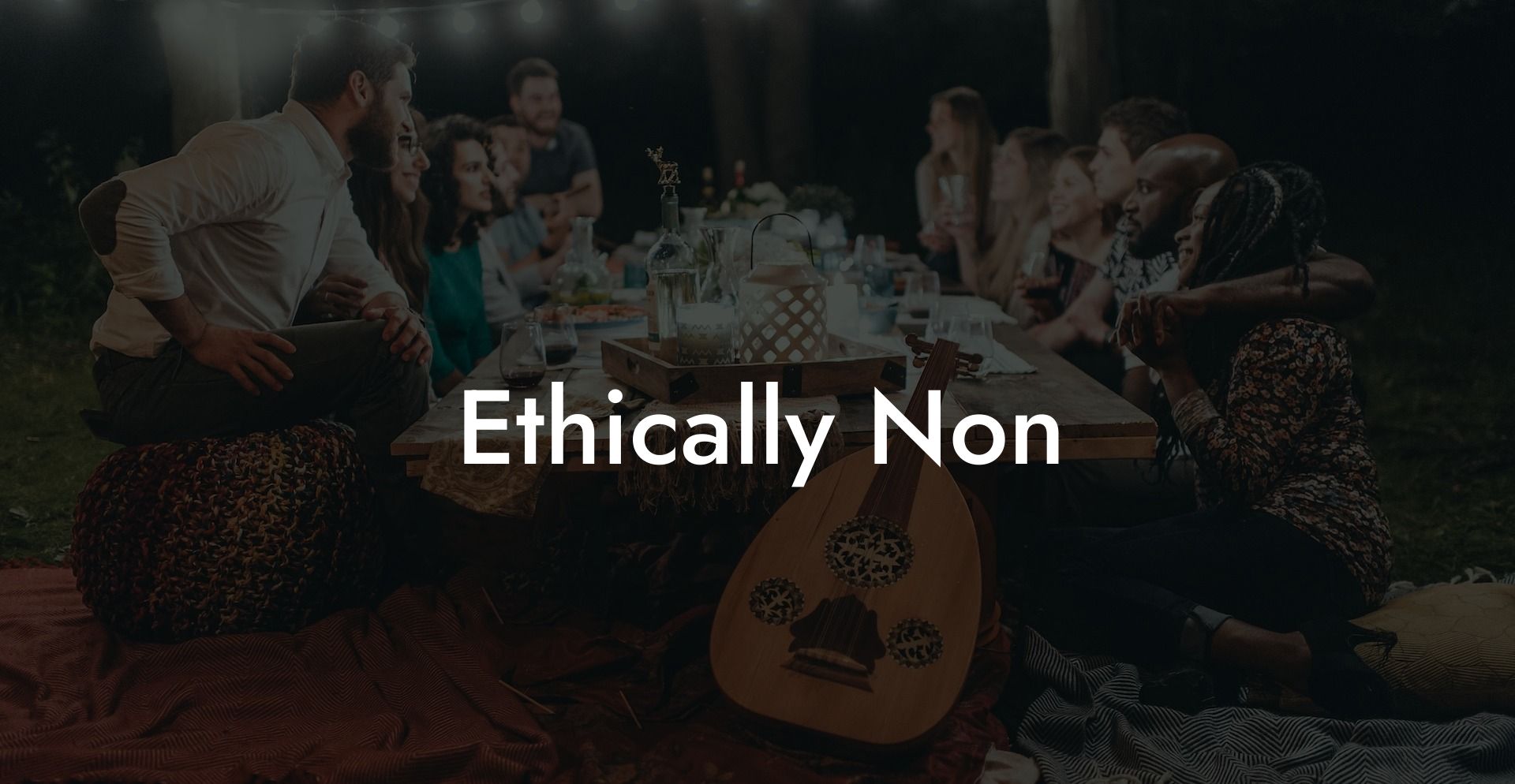In today's fast-paced world, relationships are constantly evolving, and ideas that were once considered taboo are now gaining popularity and acceptance. One such concept is the practice of ethically non-monogamous relationships. But what does it mean to be ethically non-monogamous, and how does one navigate these complex relationships? In this article, we'll explore the ins and outs of non-monogamy, and provide an in-depth look at how to establish and maintain ethical non-monogamous relationships.
Ethically Non Table of Contents
Understanding Ethical Non-Monogamy
Ethical non-monogamy is an umbrella term that encompasses a variety of relationship structures that involve more than two partners, where all parties involved have openly agreed to and consented to the non-monogamous nature of the relationship. Here are some common types of ethical non-monogamous relationships:
- Polyamory: Multiple romantic and emotional connections among several partners, with or without sexual involvement.
- Swinging: Engaging in casual, recreational sexual encounters with others as a couple or single, typically in a social setting.
- Open Relationships: A committed relationship where one or both partners are permitted to have other partners, often with agreed-upon boundaries.
Navigating Ethical Non-Monogamous Relationships
Communication
Open and honest communication is the cornerstone of any successful relationship, be it monogamous or non-monogamous. Discussing individual and collective boundaries, needs, and desires is vital in avoiding potential misunderstandings and fostering trust.
Consent
Ensure that all parties involved have given their full consent to participate in the non-monogamous relationship, and continuously check in with your partners about their comfort levels and emotional well-being.
Establishing Boundaries
Having clear boundaries in place can prevent any potential issues or conflicts, and ensures that everyone stays within their comfort zones. Boundaries can include rules regarding public or private displays of affection, frequency of communication, and specific romantic or sexual dynamics.
Emotional Support
Being able to openly discuss feelings and emotions with all partners is important when navigating an ethical non-monogamous relationship. Providing emotional support for all parties involved can strengthen the bond and maintain a harmonious dynamic.
Managing Jealousy
Jealousy is a natural human emotion, and may arise in any type of relationship, especially in non-monogamous ones. Acknowledging, discussing, and addressing jealousy in a healthy manner will help maintain the integrity of your relationship(s).
Ethically Non Example:
Imagine a couple, Sarah and Michael, who have been together for several years and decide to pursue an open relationship. They begin by having an open and honest conversation about their desires, boundaries, and any potential challenges they may face.
Sarah and Michael establish specific rules, such as always communicating about new partners, no romantic involvement with mutual friends, and prioritizing their emotional and physical well-being. They both consent to these terms and embark on new experiences with a solid foundation of trust and communication in place.
As the relationship evolves, they continually check in with each other about their comfort levels, consent, jealousy, and emotional well-being. This ongoing communication, respect for boundaries, and emotional support ensures that both Sarah and Michael maintain a healthy, ethical non-monogamous relationship.
Ethically non-monogamous relationships can offer a unique and fulfilling dynamic for those willing to embrace the challenges and rewards it may bring. With open communication, patience, and understanding, these relationships can thrive and expand in ways beyond what traditional monogamy can offer. If you enjoyed reading this exploration of ethical non-monogamy, feel free to share it with others who may also be interested in navigating this fascinating facet of human relationships. Don't forget to check out our other guides on The Monogamy Experiment for more insights into the world of monogamy, non-monogamy, and polyamory.













